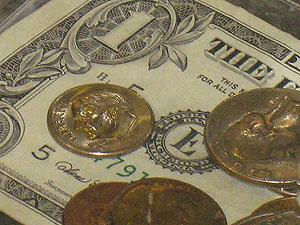Wealthiest Americans see precipitous decline in incomes — still dominate
(Image: dieselbug2007, Creative Commons)
Times are getting touch for the 1 percent.
Before you shed a tear for those making more than $250,000 a year, consider what those tough times look like. In 2007, the top 1 percent controlled 23 percent of all the income in the United States. Their average income was $1.4 million.
By 2009, they controlled just 17 percent of the U.S. income and their average income had declined to $957,000. The decline is believed to be due, in large part, to the declines in the stock market.
The income inequality in the United States, particularly in terms of the top 1 percent, has become a rallying point for the Occupy Wall Street movement.
“It’s very interesting that this has become such a big topic now when the numbers are back to where they were in the 1990s,” Steven Kaplan, an economist at the University of Chicago’s business school, said in the New York Times. “People didn’t seem to be complaining about it then.”
Louise Story, Wall Street and finance reporter for The New York Times, reported over a year ago that structural income inequality may actually be a dangerous place for the economy.
“There have been a lot of academics looking at whether the fact that the top 1 percent was making so much money — they hadn’t made so much money since 1928, right before the 1929 crash — until we got back to 1997. It was at that peak again,” Story said. “There are a lot of people looking at whether that can cause a financial crisis.”
On the flip side, though, Story said, the decline may be temporary because in 2009 the stock market fell so precipitously, and in 2010 it bounced back.
Story said that from that crash until the 1980s, the income of the middle class was going much more quickly than the top 1 percent. By the 1980s, the top 1 percent was making just 10 percent of the income. In the intervening years, it grew to that 23 percent immediately before the markets crashed.
Economists aren’t ready to predict that this will bring about a resurgence of the middle class.
“What will determine whether it really reverses probably are bigger policy changes, regulatory changes, tax changes,” Story said. “Not so much has changed yet.”
